“Great Expectations”
Luke 2:22-40
February 2, 2014, First Presbyterian Church of Jesup
New Years Eve I was delighted to count down the New Year with David, my best friend Claire, her husband and their son, sweet 2-year-old James. This past week I was able to spend a bit of time with former interim pastor, Christine and her dear son Jacob. I remember hearing the news of each of these pregnancies was quite exciting. There were baby showers, advice given, well wishes, and I’m sure their stomachs were rubbed more often than they could count. Ever since the babies were born they’ve had visits from excited family members and friends, countless memorable family photos, and birth announcements of all sorts.
 Over 2000 years ago, Isaiah prophesied Christ coming into this world. Angels told Mary she would be a mother and Joseph that he would be a father. There was even a Heavenly birth announcement in the form of a bright star in the sky. But aside from a visit with her cousin Elizabeth, Mary had no real baby shower. Jesus’ birth happened in a crowded manger heated only by the warmth of barnyard animals. They were visited not by family and friends, but by wise men, shepherds, and angels. I’d like to see that odd crew try to bring their frankincense and myrrh past hospital security these days.
Over 2000 years ago, Isaiah prophesied Christ coming into this world. Angels told Mary she would be a mother and Joseph that he would be a father. There was even a Heavenly birth announcement in the form of a bright star in the sky. But aside from a visit with her cousin Elizabeth, Mary had no real baby shower. Jesus’ birth happened in a crowded manger heated only by the warmth of barnyard animals. They were visited not by family and friends, but by wise men, shepherds, and angels. I’d like to see that odd crew try to bring their frankincense and myrrh past hospital security these days.
 It’s strange to be talking again about the birth of Jesus, but our church calendar brings us today to the “Presentation of Jesus,” celebrating Jesus’ introduction into their community, into the world he had come to save.
It’s strange to be talking again about the birth of Jesus, but our church calendar brings us today to the “Presentation of Jesus,” celebrating Jesus’ introduction into their community, into the world he had come to save.
 Galatians 4:4 tells us, “when the fullness of time had come, God sent his Son.” The fullness of time means that Christ’s birth was not intended to be a surprise, Christ came exactly when and where and how and to whom He was meant to come. Yet, the world was not ready. Just as the inns of Bethlehem were occupied, the people’s thoughts were occupied by their own schedules and census travel plans.
Galatians 4:4 tells us, “when the fullness of time had come, God sent his Son.” The fullness of time means that Christ’s birth was not intended to be a surprise, Christ came exactly when and where and how and to whom He was meant to come. Yet, the world was not ready. Just as the inns of Bethlehem were occupied, the people’s thoughts were occupied by their own schedules and census travel plans.
 Pregnancy carries it’s own “fullness of time.” There is a set amount time that a woman is pregnant. If she gives birth any earlier, it is cause for concern, any later and most doctors will induce the labor to help the mother and child along. Knowing of the pregnancy, one can begin to prepare, decorate a nursery, and celebrate with family and friends. It is an exciting time of anticipation and hope.
Pregnancy carries it’s own “fullness of time.” There is a set amount time that a woman is pregnant. If she gives birth any earlier, it is cause for concern, any later and most doctors will induce the labor to help the mother and child along. Knowing of the pregnancy, one can begin to prepare, decorate a nursery, and celebrate with family and friends. It is an exciting time of anticipation and hope.
Imagine how different a pregnancy is without this sort of preparation. There are pregnancies that carry more fear than hope: The couple who has suffered a miscarriage and is wary to expect that this time, things will be okay; a young unmarried mother who just wants to hide what is happening insider her, and doesn’t dare speak it out loud; or a woman who doesn’t know she is pregnant, something that doesn’t happen all that often, but just often enough that there is a series on TLC about this experience. Each of these circumstances carries it’s own fear, pain, and yet still, hope.
 Ever since Isaiah’s prophecy the Judaic world had been looking for a messiah. But over time it seems the anticipation inflated expectations. A savior for the world had to be a great king, right? Surely he would be born in a fortress, or castle, or temple, or at the very least, a nice home. Excited for the messiah, they forgot how God works. Since God created all things, God does not place a value system on a person based on how the world sees potential. In fact, more often than not God picks the least and the last and the meek.
Ever since Isaiah’s prophecy the Judaic world had been looking for a messiah. But over time it seems the anticipation inflated expectations. A savior for the world had to be a great king, right? Surely he would be born in a fortress, or castle, or temple, or at the very least, a nice home. Excited for the messiah, they forgot how God works. Since God created all things, God does not place a value system on a person based on how the world sees potential. In fact, more often than not God picks the least and the last and the meek.
 It seems people forgot that Abraham who became the father of many nations, was first cowardly about his marriage to Sarah and so unsure of how God was going to give them an heir that he had a child with his wife’s servant.
It seems people forgot that Abraham who became the father of many nations, was first cowardly about his marriage to Sarah and so unsure of how God was going to give them an heir that he had a child with his wife’s servant.  They didn’t remember that Moses who led the people out of Egypt was also a murder and poor public speaker.
They didn’t remember that Moses who led the people out of Egypt was also a murder and poor public speaker.  They forgot the long list of faults David carried with him even while becoming a great king. So while we can look at first century Bethlehem with clear hindsight and see that of course God would chose to become incarnate as a meek and humble infant to serve the humble and meek, this was not so clear to the people of that time.
They forgot the long list of faults David carried with him even while becoming a great king. So while we can look at first century Bethlehem with clear hindsight and see that of course God would chose to become incarnate as a meek and humble infant to serve the humble and meek, this was not so clear to the people of that time.
 So when Jesus showed up in the midst of a census, in a town with no vacancies, the bright star in the sky seemed to be no more than coincidence to the devout religious scholars. They were so busy trying to follow God as they had been told through stone tablet commandments and wound up scrolls of Torah law that they were unaware that God incarnate was living and breathing in the world. While the world was given many signs of Christ’s birth, they were not throwing baby showers, keeping an eye out for young pregnant women, or looking towards young children, looking in their eyes for a savior. Rather they react more like a mother who didn’t know she was pregnant. When they hear of Jesus’ birth they react, not by worshipping their savior, but with disbelief and fear.
So when Jesus showed up in the midst of a census, in a town with no vacancies, the bright star in the sky seemed to be no more than coincidence to the devout religious scholars. They were so busy trying to follow God as they had been told through stone tablet commandments and wound up scrolls of Torah law that they were unaware that God incarnate was living and breathing in the world. While the world was given many signs of Christ’s birth, they were not throwing baby showers, keeping an eye out for young pregnant women, or looking towards young children, looking in their eyes for a savior. Rather they react more like a mother who didn’t know she was pregnant. When they hear of Jesus’ birth they react, not by worshipping their savior, but with disbelief and fear.
 One of my favorite characters surrounding Christ’s birth is Simeon, who Joyce read about in our text today, and who was acted out by Rich Bucknell on Christmas Eve. Simeon has been waiting for the birth of the Messiah. The Holy Spirit revealed to Simeon that he would see the Messiah before his own death. The Biblical account doesn’t tell us much about the character of Simeon, but early Christian folklore provides some interesting stories on this “righteous and devout” man.
One of my favorite characters surrounding Christ’s birth is Simeon, who Joyce read about in our text today, and who was acted out by Rich Bucknell on Christmas Eve. Simeon has been waiting for the birth of the Messiah. The Holy Spirit revealed to Simeon that he would see the Messiah before his own death. The Biblical account doesn’t tell us much about the character of Simeon, but early Christian folklore provides some interesting stories on this “righteous and devout” man.
 One such story, places Simeon as one of 70 original scribes who translated the Hebrew Bible into Greek. In this story, Simeon was assigned to translate the scroll for the book of Isaiah, and as he worked, he came to a verse we hear often in our Christmas scriptures, Isaiah 7:14, which says “and the virgin shall conceive, and she will bear a son…” and Simeon hesitated, questioning the believability of this statement. Simeon concludes that somewhere along the way someone must have written this wrong, so he decides to correct the error himself.
One such story, places Simeon as one of 70 original scribes who translated the Hebrew Bible into Greek. In this story, Simeon was assigned to translate the scroll for the book of Isaiah, and as he worked, he came to a verse we hear often in our Christmas scriptures, Isaiah 7:14, which says “and the virgin shall conceive, and she will bear a son…” and Simeon hesitated, questioning the believability of this statement. Simeon concludes that somewhere along the way someone must have written this wrong, so he decides to correct the error himself.
But just as Simeon’s is about to write out his new translation, an angel appears to him, telling him the prophecy is correct as written, a virgin will indeed conceive and bear a son. Simeon questions the angel, who then promises him he will not die until he has seen the prophecy’s fulfillment in the form of a Messiah. Now, historians tell us the Greek version of the Hebrew Bible was finished somewhere around 132 BC, so if this folk tale is to be believed, it would mean Simeon would be somewhere in the range of 150 to 200 years old at the time of Jesus’ birth.
I still like this story. I can imagine Simeon as a young scribe, excited about this unbelievable miracle that he is going to witness. A messiah is coming to save his people. I like to imagine this man walking among the people, smelling of the burnt offerings of the temple, praying for peace for those he passed. Well, time passes, and Simeon grows older. I can’t imagine him keeping the story of his interaction with the Holy Spirit a secret, so there might be others waiting with him, for a while at least. Maybe they question the believability of all of this as well. Maybe they question his sanity. But, finally, so many years later the Holy Spirit comes to him again and guides him to the temple.
It is now eight days after Jesus’ birth and as Mary and Joseph enter the temple, Simeon approaches them excitedly. The Holy Spirit helps him to recognize the child and he takes him in his arms saying, “my eyes have seen your salvation, which you have prepared in the presence of all peoples, a light for revelation to the Gentiles and for glory to your people Israel.” Then he turns and says, specifically to Mary, “This child is destined for the falling and the rising of many in Israel, and to be a sign that will be opposed so that the inner thoughts of many will be revealed—and a sword will pierce your own soul too.” So much for a happy birth announcement.
The angel told Mary earlier in Luke’s gospel that Jesus would be called “Son of God,” but was not really given much detail about what else would happen to this infant, “Son of God,” child of hers. In the Gospel of Matthew an angel comes to Joseph and says, “[Mary] will bear a son, and you are to name him Jesus, for he will save his people from their sins.” But there isn’t much more instruction to that either. What will this saving son look like?
 Simeon fills in a bit of the details and at first they seem exciting, “a light for revelation and glory.” This would make a great bumper sticker. Can’t you just see it on their donkey cart now? But then he continues: “falling and rising of many,” “a sign that will be opposed,” a sword that will pierce Mary’s soul. Now this is not something a mother would like to hear.
Simeon fills in a bit of the details and at first they seem exciting, “a light for revelation and glory.” This would make a great bumper sticker. Can’t you just see it on their donkey cart now? But then he continues: “falling and rising of many,” “a sign that will be opposed,” a sword that will pierce Mary’s soul. Now this is not something a mother would like to hear.
Previous to this encounter we read of angels coming to Mary telling her of Jesus’ birth and “she was much perplexed by his words and pondered what sort of greeting this might be.” An angel has to reassure her, telling her not to be afraid. Later we read of the shepherds and that “an angel of the Lord stood before them, and the glory of the Lord shone around them, and they were terrified.” Now, Simeon tells them of the pain that comes with being the earthly parents of the messiah. I’m sure this terrified them too.
Every new parent dreams of what the future will hold for their child. If a child kicks their feet we may predict a future of soccer or football, if they point their feet, maybe ballet. If a child has long fingers we may say they will be a musician or an artist.
 In Korean culture, there is a tradition along these lines called Doljanchi. This Korean tradition celebrates the birthday of a one-year-old baby. The most important part of the dol is a ritual in which the child is placed in front of a table of foods and objects such as string, books, brushes, ink and money. Family and friends gathered watch the child to see what object they will pick up. This object is said to foretell the child’s future. If they pick up the brush or book they are destined to be a scholar; if money, they will be wealthy; if cakes, they will be in government; if a sword or bow, they will be a military commander, if the thread, they will live a long life. Over time, the objects have changed based on societal perceptions of successful occupations. Nowadays there might be a computer mouse for success in a technological field, a toothbrush for a dentist, or a gavel for lawyer.
In Korean culture, there is a tradition along these lines called Doljanchi. This Korean tradition celebrates the birthday of a one-year-old baby. The most important part of the dol is a ritual in which the child is placed in front of a table of foods and objects such as string, books, brushes, ink and money. Family and friends gathered watch the child to see what object they will pick up. This object is said to foretell the child’s future. If they pick up the brush or book they are destined to be a scholar; if money, they will be wealthy; if cakes, they will be in government; if a sword or bow, they will be a military commander, if the thread, they will live a long life. Over time, the objects have changed based on societal perceptions of successful occupations. Nowadays there might be a computer mouse for success in a technological field, a toothbrush for a dentist, or a gavel for lawyer.
I imagine the type of table Mary and Joseph would set up at Jesus’ dol. They would likely put a hammer, wanting Jesus to be a carpenter like his father. They might place a scroll, hoping him to be a temple scholar. They might put a fish, so he might be a fisherman, and a string, hoping also for a long life. However, nothing in Simeon’s prediction would likely be on that table.
 In a few minutes Olivia will sing “Mary Did You Know?” This song is a beautiful but haunting song that speaks of the daunting reality awaiting Christ, this tiny baby resting in Simeon’s arms. The works of his ministry, the impact of his faithfulness, the implications of what it will mean for him to be the savior.
In a few minutes Olivia will sing “Mary Did You Know?” This song is a beautiful but haunting song that speaks of the daunting reality awaiting Christ, this tiny baby resting in Simeon’s arms. The works of his ministry, the impact of his faithfulness, the implications of what it will mean for him to be the savior.
If Jesus’ heavenly Father were to set up a dol, it would have fishing lure, so Jesus would fish for people. There would be sheep’s wool, for leading. Next to those would be things no earthly father would set on the table, nails and a crown made of thorns. God knew Jesus would pick up all of these things.
The nativity story is not the story of a birthday party. Yes there are guests and gifts, but it’s also a scary and complicated time for this young family. It was not an easy journey to Bethlehem. It was not easy to find a place for Jesus to be born and shortly after Jesus’ birth Herod is already trying to find and kill him. Simeon further complicates things by singing one of the oddest birthday songs you will ever hear; a song filled with joy, gratitude, and pain.
This is indeed a strange birthday, because this baby comes not to receive gifts, but to give them. Jesus comes into our lives Christmas after Christmas, as an infant, but lived in our world as a Messiah. Today we celebrate his entrance into this community, his introduction into the world he had come to save. He is eager to share in our every complication and joy. Jesus comes to give us the gift of life everlasting. We are welcomed to this birthday to receive. May you, as Simeon, be open to the Holy Spirit and eager to experience God in your own life. Amen.
 Sometimes when I read scripture I’m taken aback for a moment: “evil deeds,” “lamb led to the slaughter,” “cut off from the land of the living,” “retribution upon them;” these are not phrases we are used to hearing. To 21st century ears they sound hyperbolic, a dramatic misconstruing of the situation. The type of thing that if left as a comment on an internet post would likely be disregarded as the ranting of someone out of touch with reality, if not deleted entirely. But if we allow ourselves to enter into Jeremiah’s context a bit more, perhaps we can see why Jeremiah was using such strong language, and what it was that he was striving to oppose.
Sometimes when I read scripture I’m taken aback for a moment: “evil deeds,” “lamb led to the slaughter,” “cut off from the land of the living,” “retribution upon them;” these are not phrases we are used to hearing. To 21st century ears they sound hyperbolic, a dramatic misconstruing of the situation. The type of thing that if left as a comment on an internet post would likely be disregarded as the ranting of someone out of touch with reality, if not deleted entirely. But if we allow ourselves to enter into Jeremiah’s context a bit more, perhaps we can see why Jeremiah was using such strong language, and what it was that he was striving to oppose. Jeremiah is known in tradition as the “weeping prophet,” ever lamenting for the pain of his people. Here Michelangelo depicts Jeremiah in evident distress. Situated in Judah around 600 BCE, Jeremiah saw his society fall apart around him as the Babylonians took over the area. In order for his people to have any sort of future, he pleaded with them to submit to the Babylonian authority. In 586 BCE Jerusalem was indeed destroyed, but not before Jeremiah was imprisoned, accused of treason, and nearly executed.[1] His prophetic text is filled with the pain of his people.
Jeremiah is known in tradition as the “weeping prophet,” ever lamenting for the pain of his people. Here Michelangelo depicts Jeremiah in evident distress. Situated in Judah around 600 BCE, Jeremiah saw his society fall apart around him as the Babylonians took over the area. In order for his people to have any sort of future, he pleaded with them to submit to the Babylonian authority. In 586 BCE Jerusalem was indeed destroyed, but not before Jeremiah was imprisoned, accused of treason, and nearly executed.[1] His prophetic text is filled with the pain of his people. My mind can’t help but draw a parallel to the modern day dire situation in this very same region, with places of worship again being destroyed and refugees being forced to flee their homes upon threat of death.
My mind can’t help but draw a parallel to the modern day dire situation in this very same region, with places of worship again being destroyed and refugees being forced to flee their homes upon threat of death.  Or in our own country the way that conflicts over racial and sexual identity have led to horrifying acts of violence. When the sacredness of life and livelihood are so disregarded, lament is a tremendously faithful response.
Or in our own country the way that conflicts over racial and sexual identity have led to horrifying acts of violence. When the sacredness of life and livelihood are so disregarded, lament is a tremendously faithful response. Religious Studies Professor Amy Merrill writes, “Part of what makes the lament such a powerful artistic medium is that it can give expression and structure to chaotic and overwhelming experiences… The structure of the lament works to name the sorrow without ensnaring the individual in unrelenting grief. Thus, the lament moves from grief toward some kind of resolution. In the case of Jeremiah, the lament transitions to an expression of trust. Jeremiah asserts with confidence that God knows what is hidden from others and will judge evil deeds with righteousness (v. 20). God will set the world to rights.”
Religious Studies Professor Amy Merrill writes, “Part of what makes the lament such a powerful artistic medium is that it can give expression and structure to chaotic and overwhelming experiences… The structure of the lament works to name the sorrow without ensnaring the individual in unrelenting grief. Thus, the lament moves from grief toward some kind of resolution. In the case of Jeremiah, the lament transitions to an expression of trust. Jeremiah asserts with confidence that God knows what is hidden from others and will judge evil deeds with righteousness (v. 20). God will set the world to rights.” This shift from pain to action is what makes lament so powerful. Lamenting is not the same as complaining. It is not an expression of mere frustration or an assigning of blame, but of anguish demanding justice. Lamenting is an act of vulnerability, surrendering to God’s tremendous presence and power. When we lament, we confess to the limits of our own abilities as individuals and humankind all together. We are created beings in need of our creator, with solutions lying outside of what is possible on our own.
This shift from pain to action is what makes lament so powerful. Lamenting is not the same as complaining. It is not an expression of mere frustration or an assigning of blame, but of anguish demanding justice. Lamenting is an act of vulnerability, surrendering to God’s tremendous presence and power. When we lament, we confess to the limits of our own abilities as individuals and humankind all together. We are created beings in need of our creator, with solutions lying outside of what is possible on our own. Lamenting dares to ask the questions that don’t come with easy or immediate answers: why me? why them? what more can I do? where is God in the midst of this? “Eloi, Eloi, lema sabachthani?” “My God, my God, why have you forsaken me?”
Lamenting dares to ask the questions that don’t come with easy or immediate answers: why me? why them? what more can I do? where is God in the midst of this? “Eloi, Eloi, lema sabachthani?” “My God, my God, why have you forsaken me?” We lament not because we are without hope, but because our hope lies in our God who is beyond what we can fathom. When we are surrounded with incomprehensible grief and pain, we lament because going on with business as usual would be to be out of touch with that which makes us human, separated from the breath of God that brought us into being from the beginning of creation. We are not called to be callous in the face of injustice, rather to follow the call of Romans 12:15 and “mourn with those who mourn,” even and especially when we are the ones who are mourning.
We lament not because we are without hope, but because our hope lies in our God who is beyond what we can fathom. When we are surrounded with incomprehensible grief and pain, we lament because going on with business as usual would be to be out of touch with that which makes us human, separated from the breath of God that brought us into being from the beginning of creation. We are not called to be callous in the face of injustice, rather to follow the call of Romans 12:15 and “mourn with those who mourn,” even and especially when we are the ones who are mourning. As followers of Christ we have ingrained in the fiber of our community the knowledge that God is not finished with us yet. We experience pain and we experience healing. We experience emptiness in our grief and wholeness in our mourning. We witness death, but know resurrection is coming. We’ve seen the horrors of the cross, but our hope is in the emptiness of the tomb.
As followers of Christ we have ingrained in the fiber of our community the knowledge that God is not finished with us yet. We experience pain and we experience healing. We experience emptiness in our grief and wholeness in our mourning. We witness death, but know resurrection is coming. We’ve seen the horrors of the cross, but our hope is in the emptiness of the tomb. Questioning the presence of God in the midst of horror is not a sin of insubordination, but an act of honesty, a willingness to be vulnerable with our emotion towards our creator in whom we are called in Acts 17:28 to live and move and have our being. The fact that Jesus himself questions God’s ways shows that questioning is not incongruent with belief, or with Christianity itself.
Questioning the presence of God in the midst of horror is not a sin of insubordination, but an act of honesty, a willingness to be vulnerable with our emotion towards our creator in whom we are called in Acts 17:28 to live and move and have our being. The fact that Jesus himself questions God’s ways shows that questioning is not incongruent with belief, or with Christianity itself. Our God is a God of empathy, so desiring to enter into the joy and pain in of our world that God came to earth in the tremendously vulnerable form of a human, Jesus Christ. We are created us in God’s own image and charged with the fundamental call to love one another, to empathize with each other’s joy and pain.
Our God is a God of empathy, so desiring to enter into the joy and pain in of our world that God came to earth in the tremendously vulnerable form of a human, Jesus Christ. We are created us in God’s own image and charged with the fundamental call to love one another, to empathize with each other’s joy and pain. When our reality is incongruent with God’s desire for us, it should make us uncomfortable and cause us to seek God’s love and justice. The fullness of God’s love for us and the love we are charged to share with one another, means we are called to care, to be vulnerable, to truly desire God’s will on earth as it is in heaven. May the injustices of this world cause us to lament with hope for the world to come. Let all God’s children say: Amen!
When our reality is incongruent with God’s desire for us, it should make us uncomfortable and cause us to seek God’s love and justice. The fullness of God’s love for us and the love we are charged to share with one another, means we are called to care, to be vulnerable, to truly desire God’s will on earth as it is in heaven. May the injustices of this world cause us to lament with hope for the world to come. Let all God’s children say: Amen!
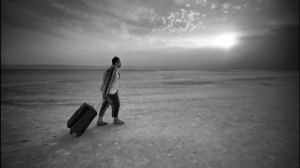
























































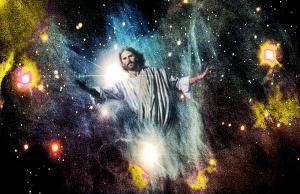
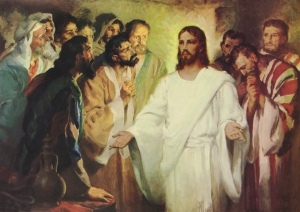








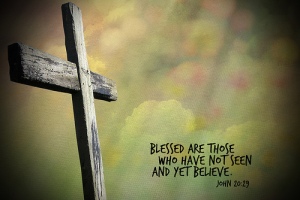











































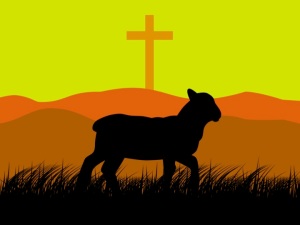






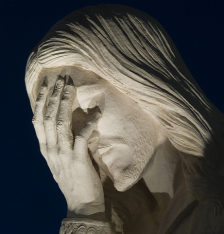















































































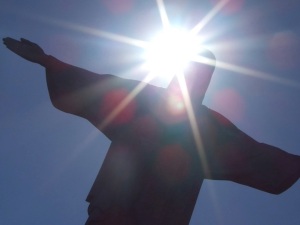

 ny guesses to who I might be talking about?
ny guesses to who I might be talking about? Angels announced both of their births. An angel came to Elizabeth, Mary’s cousin, and told her that even in her old age she would have a baby. An angel came to Mary and told her that even though she was a virgin she would have a baby. Surprises all around.
Angels announced both of their births. An angel came to Elizabeth, Mary’s cousin, and told her that even in her old age she would have a baby. An angel came to Mary and told her that even though she was a virgin she would have a baby. Surprises all around.
 John is often depicted like this picture here. Here in this otherwise formal portrait, John is disheveled, a wild man who lived out in the wilderness. He was described wearing a leather belt and a tunic of camel hair, living off locusts and wild honey. His message was not for those who were concerned with appearances, but for those concerned with God’s work throughout our lives and into eternity.
John is often depicted like this picture here. Here in this otherwise formal portrait, John is disheveled, a wild man who lived out in the wilderness. He was described wearing a leather belt and a tunic of camel hair, living off locusts and wild honey. His message was not for those who were concerned with appearances, but for those concerned with God’s work throughout our lives and into eternity. “What should we do?” asked the crowds.
“What should we do?” asked the crowds.
 John lived his life rejoicing in the company of Jesus Christ. As we are already in the midst of this season of giving, this is an important example to remember. In this Christmas season we will both give and receive gifts, but we needn’t get caught up so much in the gifts themselves, but rather on the relationships that surround them. When we give let us remember John’s command for sharing, fairness, and consideration, but also the simplicity and unconditional nature of John’s joy in God’s presence.
John lived his life rejoicing in the company of Jesus Christ. As we are already in the midst of this season of giving, this is an important example to remember. In this Christmas season we will both give and receive gifts, but we needn’t get caught up so much in the gifts themselves, but rather on the relationships that surround them. When we give let us remember John’s command for sharing, fairness, and consideration, but also the simplicity and unconditional nature of John’s joy in God’s presence. My sister and I were talking the other day about some gifts we have given and received over the years. No matter what the material gift was that was received, the ones that had the most impact were those that reflected a genuine, unsolicited knowledge of the recipient. These were gifts that required listening, required paying attention, required being in relationship. The greatest gift we can receive was the gift of being known.
My sister and I were talking the other day about some gifts we have given and received over the years. No matter what the material gift was that was received, the ones that had the most impact were those that reflected a genuine, unsolicited knowledge of the recipient. These were gifts that required listening, required paying attention, required being in relationship. The greatest gift we can receive was the gift of being known. With this in mind, the gifts of the wise men initially seem quite strange. They are coming to celebrate the birth of a baby and bring gold, frankincense, and myrrh. Seems like quite the strange baby shower presents. Surely these were not gifts that Mary and Joseph would’ve registered for at Babies R Us. But the gifts are also right on track because they point to a knowledge of who this little baby Jesus will become. These are gifts of knowing Jesus’ future. The gold was the symbol for the king; frankincense for the priesthood, and myrrh for healing. These gifts, then, point to a greater gift: the most important gift of this season that cannot be wrapped up in a box or written on a check.The most important gift is the gift of Jesus’ life, which is offered at his birth. Even as a baby, these gifts tell us that Christ is the great king, the priest of all priests, who came to heal this broken world.
With this in mind, the gifts of the wise men initially seem quite strange. They are coming to celebrate the birth of a baby and bring gold, frankincense, and myrrh. Seems like quite the strange baby shower presents. Surely these were not gifts that Mary and Joseph would’ve registered for at Babies R Us. But the gifts are also right on track because they point to a knowledge of who this little baby Jesus will become. These are gifts of knowing Jesus’ future. The gold was the symbol for the king; frankincense for the priesthood, and myrrh for healing. These gifts, then, point to a greater gift: the most important gift of this season that cannot be wrapped up in a box or written on a check.The most important gift is the gift of Jesus’ life, which is offered at his birth. Even as a baby, these gifts tell us that Christ is the great king, the priest of all priests, who came to heal this broken world. 
 But let us not let our leaping with joy in Christ’s presence be contained to the wombs of our world, the places where we are comfortable, secure, and nourished. Let us leap throughout out lives, sharing the love of Christ. May we, like John, be a witness to the light of Christ, giving the gift of Christ’s love into this world. Amen.
But let us not let our leaping with joy in Christ’s presence be contained to the wombs of our world, the places where we are comfortable, secure, and nourished. Let us leap throughout out lives, sharing the love of Christ. May we, like John, be a witness to the light of Christ, giving the gift of Christ’s love into this world. Amen.








